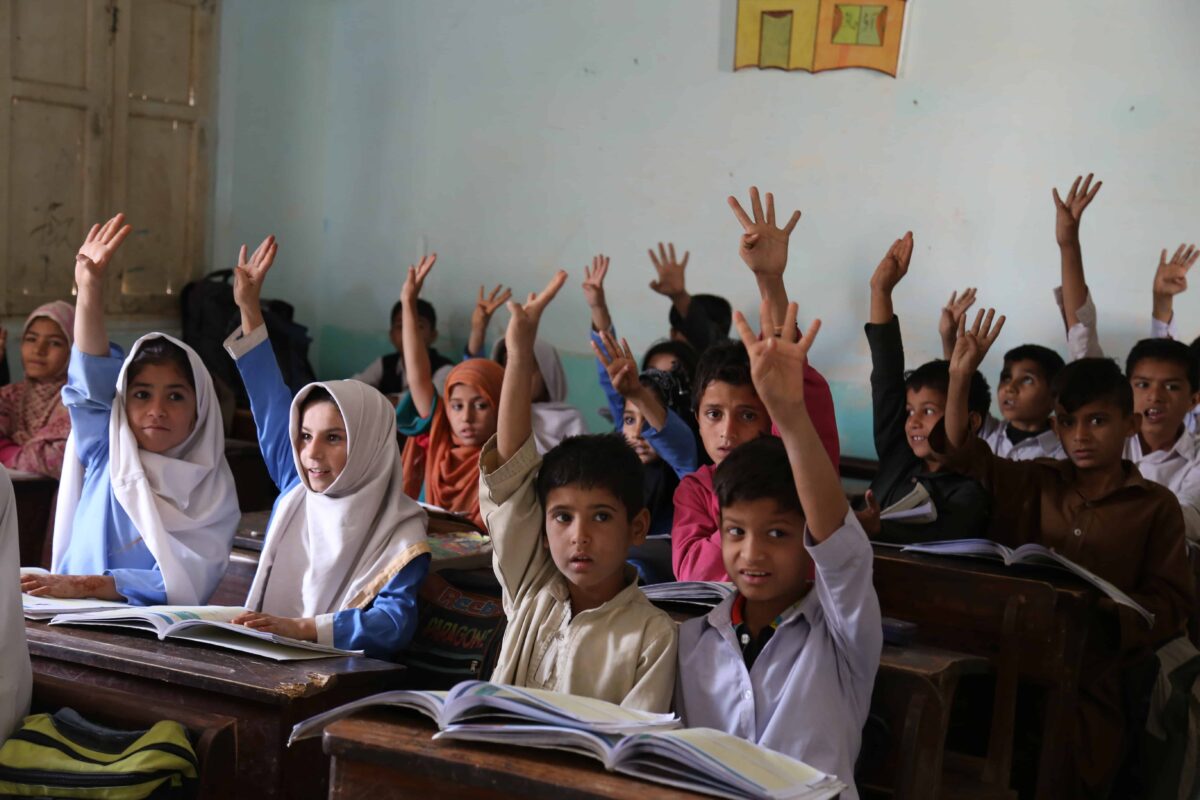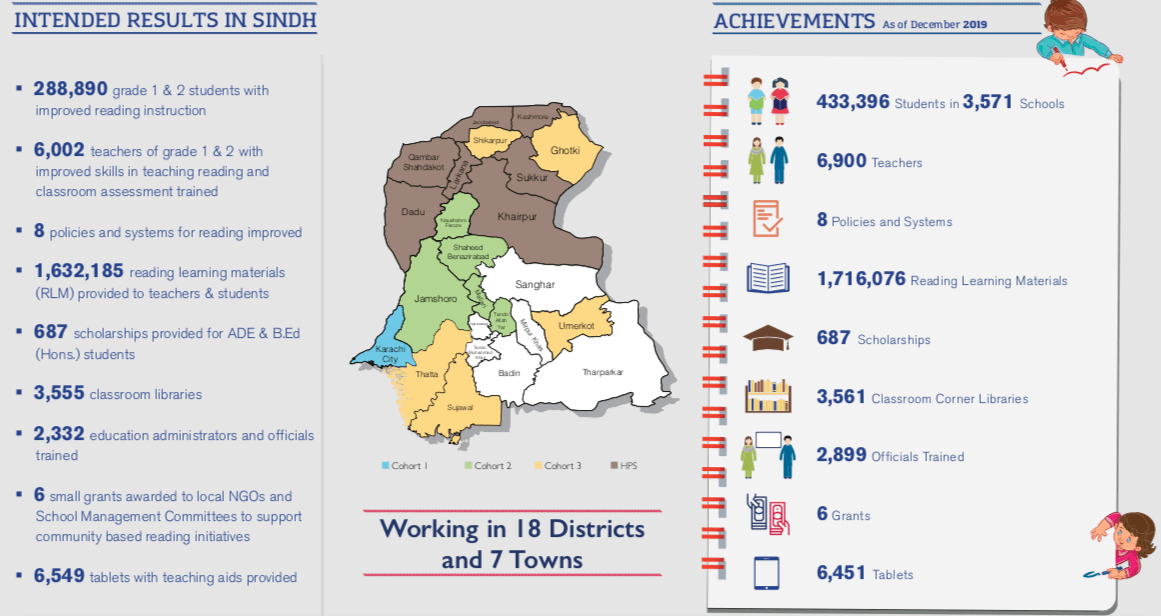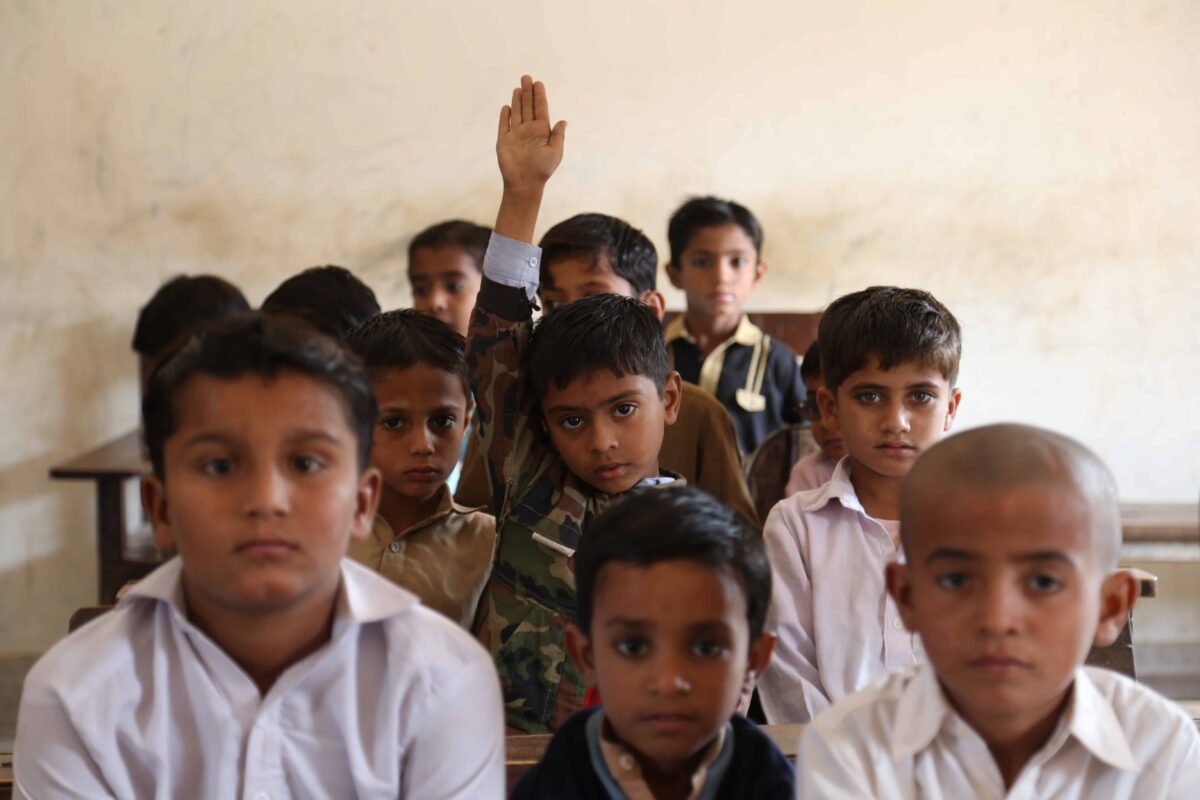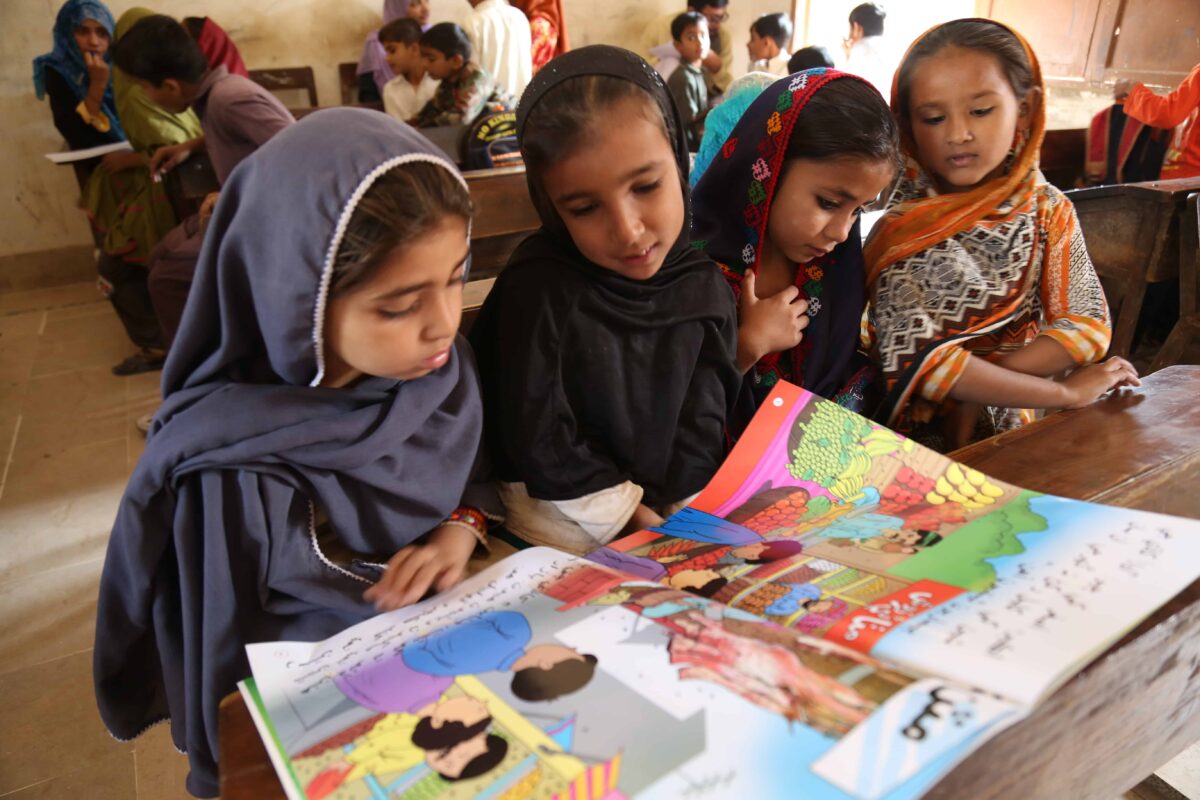27,000 teachers trained, 7 million units of reading learning materials produced and 1.5 million students supported through the USAID Pakistan Reading ProgramEn 2013, Pakistan was one of the few countries in the world seeing an increase in illiteracy rates among school-aged children. Hoy, that trend has reversed, with the USAID-funded Proyecto de lectura de Pakistán (PRP) playing a critical role in raising literacy rates through community level interventions and national policy reform.
After nearly seven years tackling one of the country’s steepest development challenges, the early-grade reading project is coming to its scheduled close, leaving behind a culture of reading and a deep investment in educators, parents and communities.
“The Pakistan Reading Project has shown us what a commitment to addressing learning gaps at every level of the education system, from teachers in local schools to policy reform, can do for children,” says R. Drake Warrick, Project Director for PRP at Creative Associates International. “And the results speak for themselves.”
Financiado por el A NOSOTROS. Agencia para el Desarrollo Internacional, PRP was implemented by the International Rescue Committee (IRC) in partnership with Creative, World Learning and IRM.
USAID’s largest reading project to date, PRP developed the reading instruction skills of 27,000 teachers and provided 1.5 million early grade students with improved reading curriculum and more.
At the local level, in some cases the project exceeded its goals. In Sindh, the country’s second largest province, PRP reached over 433,000 estudiantes en 3,852 escuelas, doubling its projected impact.

Promoting learning in local languages
Rooted in the understanding that early grade school children learn to read best when starting out in local languages, the Pakistan Reading Project raised literacy rates in part by creating new materials in Pakistani languages.
“Cuando empezamos, people did not understand why we were working with the local languages and not in English,” says Anjum Pervaiz, Senior Head of Office in Sindh province. “So that’s a paradigm shift.”
The project developed and distributed 7 millones de nuevos materiales de aprendizaje de lectura en todo Pakistán para profesores, estudiantes y funcionarios de educación en urdu, sindhi, pastún, Balochi and Brahui languages, entre otros.
“If you go to the market here you will find beautiful books in English, but in even in our own national language Urdu we lacked early grade reading materials,” says Ijlal Hussain. "Entonces, we produced reading learning materials in seven Pakistani languages and dialects… and the beautiful thing is we have done it with the help of the government, we aligned ourselves with the government’s needs and priorities.”

This multipronged investment in both teacher training, policy reform and in creating textbooks better tailored for educators and students’ contexts showed results. A USAID-commissioned independent early grade reading assessment (EGRA) showed a significant improvement in students’ reading fluency in Pakistan as a result of PRP’s intervention. Por ejemplo, in Sindh in Urdu the oral reading fluency increased from 30 correct words per minute recorded in 2014 a 57 en 2017, a drastic change.
“In 2013, EGRA was a strange word for the education sector here… but now I think we have built capacity in government education departments, not only to adapt EGRA, but to analyze tests and compile reports,” says Hussain. “These are some of the things we should be proud of as a team.”
Investing in teachers
A major focus of Creative’s role in USAID’s Pakistan Reading Project was supporting policy reforms to promote early grade reading. By supporting teacher training colleges and universities offering education degrees with a reading specialization, as well as developing and distributing learning materials and teacher aids, the project is leaving behind a wealth of knowledge in the hands of the those with the most impact on students’ lives.
Because teachers in the provinces did not have any formal system for in-service training prior to PRP, the province-wide establishment of a “continuous professional development” structure for teachers in Sindh and other regions is a key highlight. Across the nation, the project trained over 27,000 profesores. 6,900 of them were from Sindh, the country’s second largest province and where Creative implemented the full PRP program. In other regions, Creative was the nationwide lead for policy, gender and public-private partnerships.
“We found that the teachers became more motivated as a result of the trainings,” says Sadia Adeeb, the Teacher Training Coordinator in Sindh.
The continuous professional development trainings not only offered educators teaching strategies, but they created a network of support in the education community. This further cemented the project’s goal of fostering a culture of learning.

“We found that the teachers became more motivated as a result of the trainings,” says Sadia Adeeb, the Teacher Training Coordinator in Sindh.
The continuous professional development trainings not only offered educators teaching strategies, but they created a network of support in the education community. This further cemented the project’s goal of fostering a culture of learning.
Elevating girls’ education
The Pakistan Reading Project also laid the groundwork for significant advances in girls’ education in a country where only 43.4 por ciento de las niñas llegan a la escuela secundaria y sólo25 por ciento of the total labor force is comprised of women. Higher expectations around doing housework, more responsibilities than boys during the harvest season in some rural areas, and less access to women’s schools all hinder Pakistani girls’ education.
Como resultado, the number of images and stories representing young women in grade one Urdu language textbooks has increased overall. Por ejemplo, women representation in the text of new textbooks increased from 24 por ciento a 47 percent in Balochistan and from 33 por ciento a 44 percent in the Islamabad Capital Territory.. Calificación 2 Los libros de texto han experimentado avances similares.. These more inclusive textbooks are now used in all public schools across five of the seven regions of Pakistan.
“The power of imagination shouldn’t be underestimated," dice el Dr.. Eileen San. jorge, Vice President of Creative’s Education division. “When a young girl can see herself reflected on the pages of a book as a pilot or a doctor, she is that much closer to achieving her goals.”

Sostenibilidad
Creative’s team led the effort to develop the national and provincial Reading Improvement Strategies, which are a set of key policies that support early grade reading. Adopted by Pakistan’s government, these policies are one of the Pakistan Reading Project’s key legacies.
But the project is not only leaving behind significant policy reforms at the national and provincial level, but also successful models of public-private partnerships that furthered its vision of raising literacy rates and promoting a culture of reading.
By developing alliances with private sector partners on behalf of the Pakistani government, PRP mobilized and maintained social investment to improve reading outcomes in Pakistan’s public schools.
Más que 130,000 students enrolled in schools outside PRP’s purview benefited from the public-private partnerships the Pakistan Reading Project facilitated. A través de estas asociaciones, the private sector contributed $130,335 toward government schools in a host of ways, such as backpack donations, new books and other supplies, as well as classroom renovations.
The team’s hope is that the systems and partnerships established between the provinces’ departments of education and businesses will continue to support schools and communities now that the project has concluded. Coupled with its teacher capacity building initiatives and high quality reading materials, the project has given Pakistan a strong foundation to continue offering meaningful education to its children.
“These policies and materials will stay there beyond the project, those beautiful pictures that show gender equality will stay in the country,” says Pervaiz.
With reporting from Dr. Ijlal Hussain.